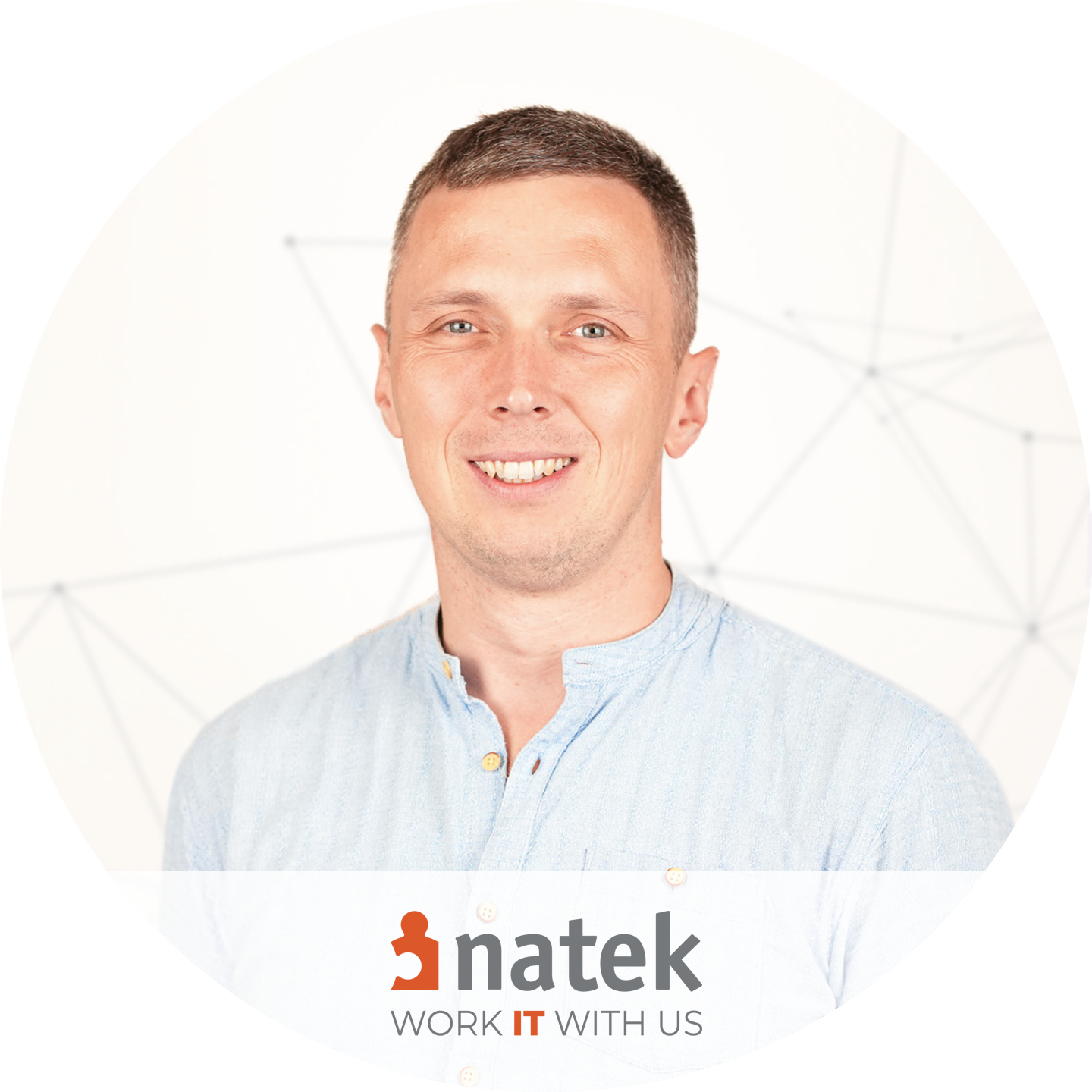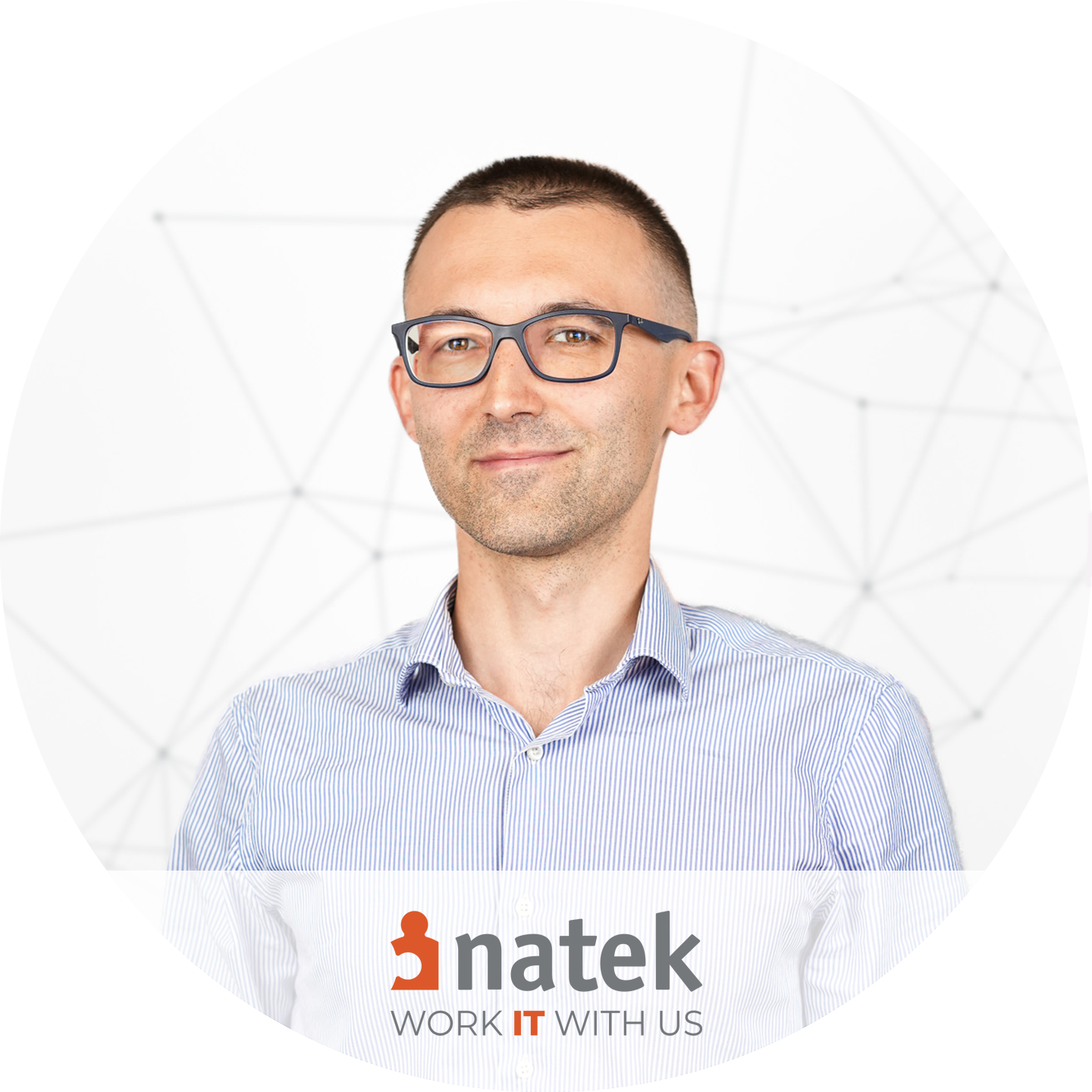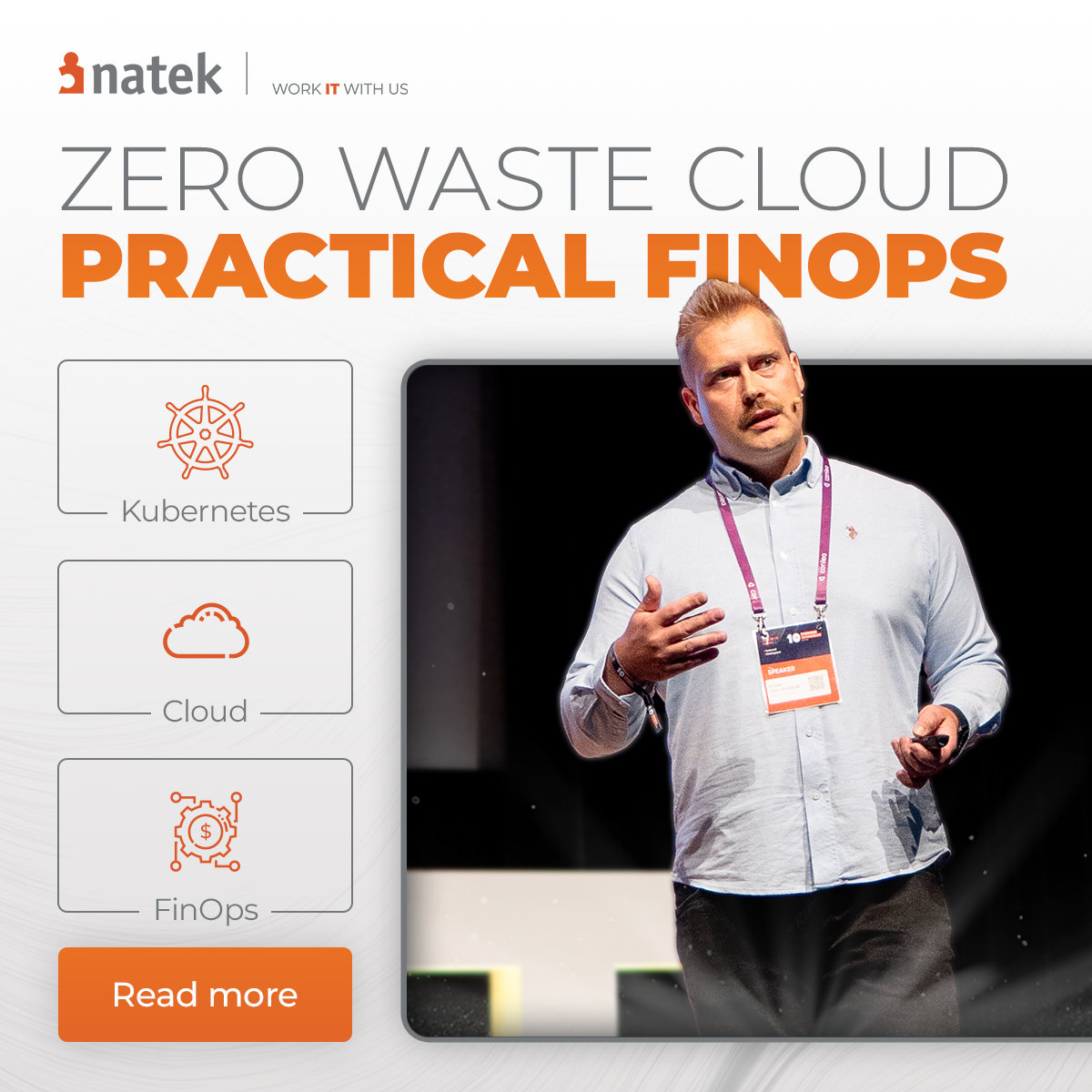The rapid growth of technology continues to transform businesses and work environments worldwide. Organizations that rely heavily on the new tech solutions need to be especially careful to ensure these tools and techniques are used effectively. And while technology is fundamentally data-driven, the successful development of IT projects increasingly relies on human skills - such as emotional intelligence, empathy, and leadership - that technology cannot replicate. Therefore, even though the growth of AI doesn’t seem to slow down, with the market size expected to show an annual growth rate (CAGR 2024-2030) of 28.46%, resulting in a market volume of US$826.70bn by 2030, a human-centered approach to IT projects remains crucial. But why?
Read on to discover the importance of non-technical skills and roles in the IT industry from the perspective of our Experts - Jarosław Dudek, NATEK Process Manager and Mateusz Doziwski, NATEK Patching Process Specialist – who had a pleasure of presenting their thoughts on the matter during OPER8IT 2024 conference in Gdynia, Poland.
What roles are important for the IT market?
While the demand for skilled tech experts remains high both on Polish market and in NATEK, we see an increase of interest in the non-technical roles, with key positions including Project Manager, Business Analyst, HR and Recruitment Officer and Delivery Manager. Non-tech roles represented only 8% of our Team Members in 2022, and in 2024 this percentage rose to 17% (similar to the numbers in Poland). While the importance of technical skills in developing IT projects is undeniable, they are no longer viewed as the sole valuable assets in rapidly developing companies. What has driven this shift? According to the IT Community Survey Report 2024, primary challenges in IT are often unrelated to technology itself! Amongst the most crucial factors listed, we will find faulty procedures and communication problems in the company, which are related to people management and time management, not just tech.

“For the foreseeable future, Artificial intelligence won’t be able to fully replace humans. And seeing how it can enhance the need for soft skills on the market, we should view it as an opportunity for growth, and not a threat. Our relationships with coworkers, customers, business partners and technology have to be built on trust.”
Jarosław Dudek, Process Manager
How soft skills became the answer to those issues? NATEK Case study
Most success stories are a result of many years of trials and errors, and in the case of IT projects - effective teamwork and a flexible approach to encountered obstacles. Studies show that amongst the 10 skills most prioritized for reskilling and upskilling in the next five years, only AI and Big Data and Technological Literacy are considered technical! What are the remaining 8?
- Analytical thinking
- Leadership and social influence
- Creative thinking
- Resilience, flexibility, agility
- Curiosity and lifelong learning
- Design and user experience
- Talent management
- Motivation and self-awareness
As organizations navigate the complexities of IT projects, soft skills have emerged as vital tools for addressing non-technical challenges. Effective communication, empathy, and leadership foster collaboration and enhance problem-solving capabilities within teams. In the case of NATEK, our Experts recognized that the traditional reliance on technical skills alone was insufficient to overcome the multifaceted issues encountered during project execution.
When patching becomes complicated, thinking outside the box is essential
Our Team of Experts has been regularly patching thousands of devices for our Customer. Stepping into the project, NATEK Team encountered numerous challenges—predominantly non-technical, such as unclear application ownership, frequent incidents caused by data insufficiency, inadequate procedures and processes and ineffective hiring.
In addition to addressing existing issues, our Team also worked to enhance the entire process, which is crucial for the safety of an organization. NATEK Team and our Customer had to take on a new approach.
Instead of investing in more technicians, we agreed to create a Team of non-technical Coordinators, whose main tasks were to improve relationships with Application Owners, obtain information about safe maintenance windows, and take full responsibility for change management as well as the number of patched devices.
The outcome
This way of approaching patching for such an impressive number of devices, came with several benefits, including reduced costs of the process, allowing the technicians to focus solemnly on technical
issues, strengthening our partnership with Customer and of course - a significant improvement in the final results. Starting with 46% of patched environments, we have now achieved an impressive 99%, with the goal of reaching 100%. This score became possible thanks to several years of diligence and perseverance. But NATEK Team is still working on further improvements in the project. Next on board? Enhancing source data quality and shifting the Customer’s approach toward obtaining approvals, particularly through the "no response" strategy.

“Instead of waiting for individual responses from Application Owners, (which in many cases were never coming) we adopted a "no response = approval" strategy. Thanks to this, patching was postponed only when someone responded negatively to our request. We have noticed a positive impact on our results and communication with the Customer thanks to this approach.”
Mateusz Doziwski, NATEK Patching Process Specialist
"Are Coordinators essential when using a “no response" strategy?"
A great question asked by one of the participants of Jarosław and Mateusz's lecture. In theory, patching could be done automatically, especially when done under a massive approach and with the use of automation. Yet in practice, Coordinators' influence on the success of each upgrade and update is immense. Why? Because automation requires standardization, and as long as we are working with other people, many situations cannot be predicted therefore planned for. Good Coordinators use their communication skills and empathy to build unique bonds with the Customers, based on trust, openness and creativity. They also work to anticipate various scenarios, ensuring that patching plans minimize disruptions and maintain optimal device safety, functionality, and compatibility.
World run by AI? Not yet!
Despite the rapid development of AI and the scope of its use, soft skills will continue to be essential, particularly in addressing ethical issues surrounding AI that directly impact people management and Customer interactions. If you'd like to develop an IT project with a Team that has prioritizes a human approach to Partnership, contact us! Tell us what you need by sending a message to NATEK Sales Prospection Team Lead Andrzej Osman at andrzej.osman@natek.eu or go to our services page, find out what our Team can do for you and #growITwithus!



